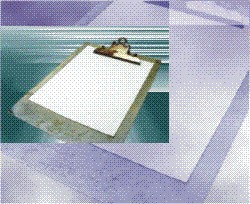ELECTRONIC COMMERCE AND TELECOMMUNICATIONS IN NICE
Delivered by: Dr. Shamsudeen Usman
Deputy Governor - Financial Sector Surveillance Central Rank Of Nigeria
ON 23RD SEPTEMRER 2002,
AT THE GOLDEN GATE
RESTAURANT, IKOYI. LAGOS
Protocol
I feel honoured to be
invited to make these brief remarks at the opening of this International
Conference on Electronic Commerce and Telecommunications
in
Nigeria. The theme of
this conference which is Electronic Commerce and Telecommunications-
Maximising the Benefits of the Digital Economy" is not only apt, but also
timely.
The internet being an
electronic distribution channel offers several clear advantages to financial
services institutions. One of such advantages is that a company can utilize
the self service model of the internet to deliver a variety of products or
services to a worldwide audience without having to add considerable
infrastructure or personnel resources. This could have a positive impact on
the revenues and profitability growth of such a company. It can enhance the
quality of the interaction between financial services institutions and their
customers, thus affording them the opportunity to increase their market
share. In addition, it has image enhancing attributes that enables business
organizations to create a range of innovations.
E-commerce however,
exposes institutions/companies to a lot of risks which amongst others
include strategic, operational, security, reputational, legal, money
laundering, cross border, credit, liquidity, market, foreign exchange and a
host of others. Accordingly operators will need to put in place control
measures that will mitigate/minimize the risks associated with e-commerce
while the regulators are concerned with maintaining market confidence,
protecting the consumers, reducing financial crime and promoting the safety
and soundness of the financial system. In this regard, the regulators will
need to seriously consider the implications of such risks and their impact
on businesses especially those of banks and other financial service
providers as well as the economy as a whole.
In Nigeria today there
is a growing interest & awareness of c-business coupled with a proliferation
of websites especially by Nigerian banks, which was facilitated by advances
in telecommunications and information technology. Already a number of
Nigerian banks' websites have the capability of supporting and actually
permitting the conduct of e-banking and e-commerce. This is inevitable if
the banks are to be able to compete at the global financial landscape.
In "addition, electronic
commerce in Nigeria presents major challenges to not only the regulatory
authorities and government agencies but also the operators. These include
amongst others:-
i The
need to have in place certain basic infrastructural facilities such as
effective and efficient electricity supply and telecommunications. "
ii. Skilled
manpower to use and maintain internet resources.
iii. A legal and
regulatory framework that will guide the conduct of electronic
commerce in Nigeria.
Governments around the world are waking up to the
fact that the Internet
and e-commerce need to be regulated. The Indian Parliament, for example, has
recently passed an Information Technology Act, which lays down the framework
for electronic commerce in India, while other European and U.S. governments
are in the process of framing their own laws to regulate the Internet. The
CBN is therefore of the view that given our level of development, Nigeria
should draw from the experience of countries such as India, Hong Kong etc,
by way of introducing some form of regulation for e-commerce not only
because of the need to guide the conduct of participants, but also because
of the need to protect the consumers. Towards achieving this objective,
there is the need for close co-operation and co-ordination between the
National Assembly, the relevant regulatory authorities and Government
agencies as well as the private sector, in order to facilitate the
development of robust legal and regulatory framework for electronic
commerce.
iv. Lack of
awareness/education on the part of Nigerian consumers/businesses
of the full potentials
and benefits of the internet which in turn will continue not only to hinder
the acceptance and growth of e-commerce, but encourage
the restricted use of
the internet in the country to sending and receiving e- mails as well as
research by students/academics. In addition, the predominance of the use of
cash for transactions means that, the benefits derivable from using the
internet to drive the economy may not be realized. Such benefits include
moving money electronically thereby allowing for larger and more frequent
business deals to be made.
v.
Combating/containing cyber crimes, cyber fraud, money laundering and other
financial crimes without compromising the individual privacy.
Ladies and Gentlemen, I
am optimistic that this conference is going to discuss comprehensively the
challenges raised above, raise other critical issues bordering on electronic
commerce and proffer solutions to them. Please note that as new capabilities
and technologies are incorporated into our. financial services environment,
the CBN, in the discharge of its very special responsibilities, will not
compromise the safety and soundness of the payment and banking systems as it
will continue to monitor applications and developments in the field of not
only e-banking but e-commerce in the country.
I thank you for your
kind attention and wish you fruitful deliberations.
Will continue to support
and encourage such innovative application that pass the value-added and
profitability test.
In conclusion, I wish to
assure you that as the new capabilities and technologies are incorporated
into our financial services environment CBN, in the discharge of itís
special responsibilities, will not compromise the safety and soundness of
the payment and banking system as we will continue to monitor application
and development in the field of e-banking and e-payments in the country.
I thank you for your
attention.
BANKING SUPERVISION
DEPARTMENT
CENTRAL BANK OF NIGERIA
ABUJA
SEPTEMBER 2002
|


